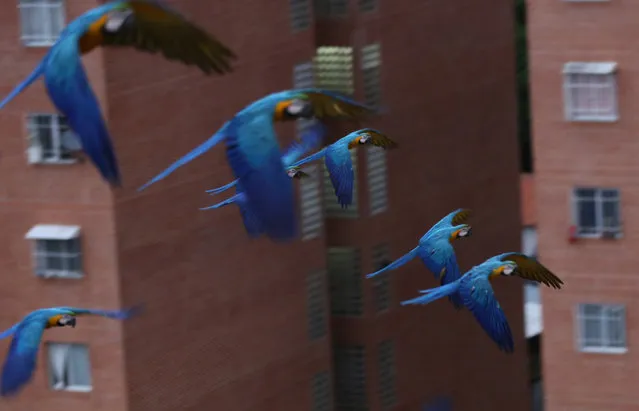
In this November 24, 2014 photo, macaws fly over the city in Caracas, Venezuela. Macaws are thriving amid the high-rises and traffic of Caracas thanks to a group of amateur birders who feed them and watch out for their nests. Visitors to Venezuela's capital soon grow accustomed to lifting their heads at dusk and dawn to see the stately birds glide by, usually in a pair. (Photo by Ariana Cubillos/AP Photo)
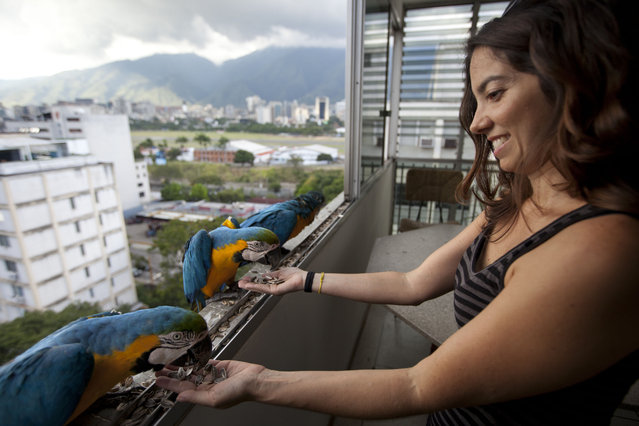
Vanessa Silva, 38, feeds macaws that fly to her apartment window every day looking for food, in Caracas, Venezuela. A group of gold-and-royal blue birds poked their heads through Silva’s window, as if saying “I’m here, is anyone home?” “I’d seen them flying when I was down on the street, and I thought ‘Oh how pretty,’” the 38-year-old said, a macaw eating out of her hand. (Photo by Ariana Cubillos/AP Photo)
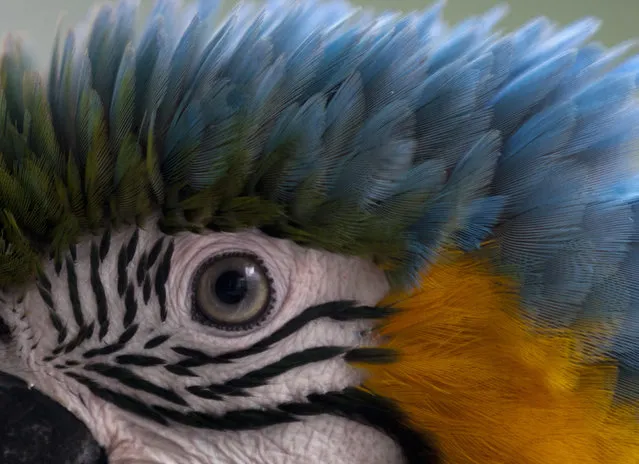
A macaw stands in the window ledge of apartment, waiting to be fed by the apartment owner, in Caracas, Venezuela. Caracas’ signature bird is the blue-and-yellow macaw, one of four such species that inhabit the valley. (Photo by Ariana Cubillos/AP Photo)
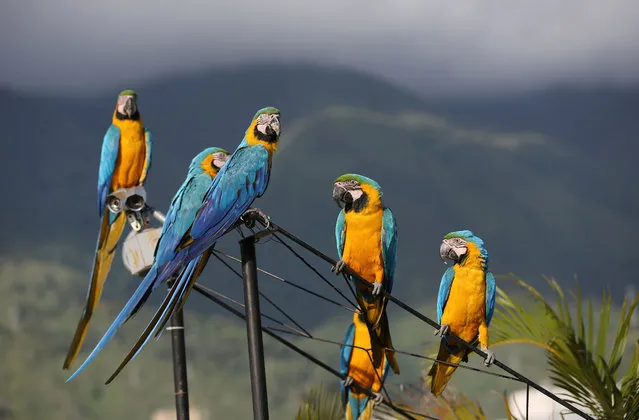
Macaws perch on a structure atop a building in Caracas, Venezuela. Macaws are thriving amid the high-rises and traffic of Caracas thanks to a group of amateur birders who feed them and watch out for their nests. (Photo by Ariana Cubillos/AP Photo)
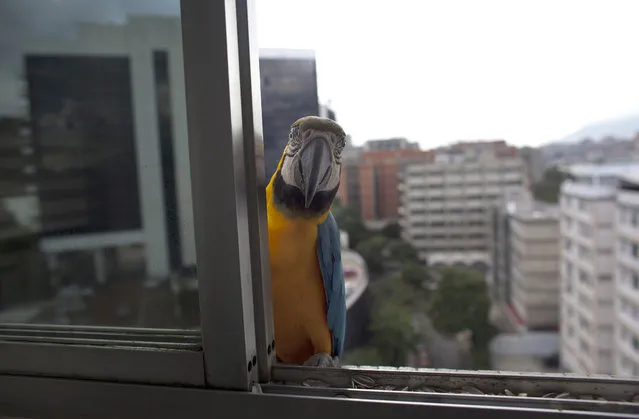
A macaw peers through a window of an apartment waiting to be fed, in Caracas, Venezuela. They are a common site sitting on the ledges of high-rise buildings or perched on antennas. While solid figures don’t exist, the population of macaws in Caracas is estimated to be several hundred. (Photo by Ariana Cubillos/AP Photo)
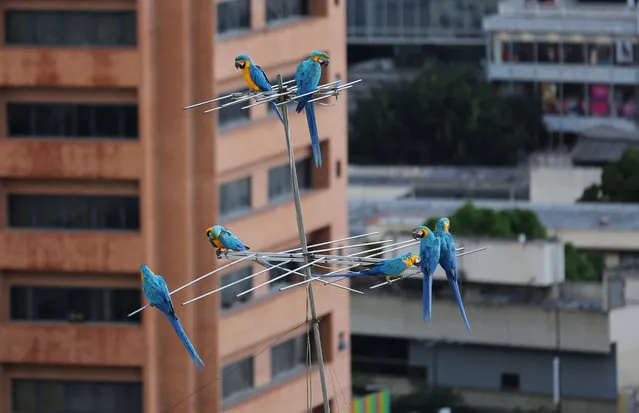
Macaws perch on an antenna in Caracas, Venezuela. The city of around 6 million people does not seem welcoming for exotic birds. But the macaws supplement the food they forage with snacks the birders leave for them. They are a common site sitting on the ledges of high-rise buildings or perched on antennas. While solid figures don’t exist, the population of macaws in Caracas is estimated to be several hundred. (Photo by Ariana Cubillos/AP Photo)
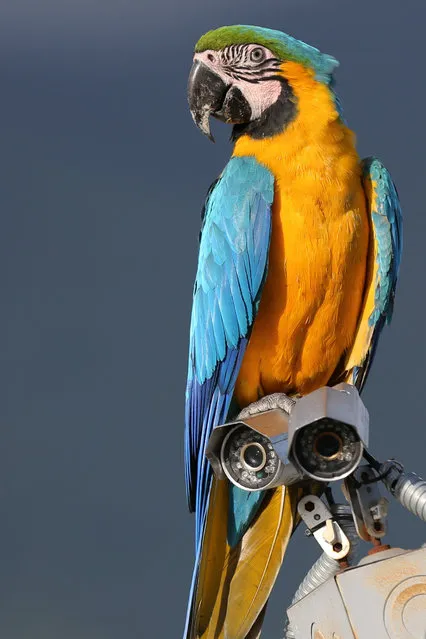
A macaw perches on a building's security camera in Caracas, Venezuela. In one of the world’s most-hostile urban jungles, the spectacle of rainbow-colored tropical birds streaking across the late-afternoon sky has become a natural respite from rampant crime and choking pollution. (Photo by Ariana Cubillos/AP Photo)
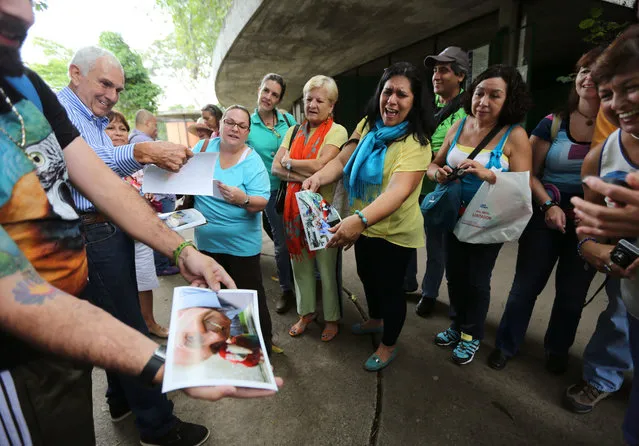
Residents look at pictures of macaws as they gather at a park, as part of a group called “Macaws in Caracas”, in Caracas, Venezuela. The informal group that has more than 2,000 members, shares stories about their encounters with the birds_ the fright they felt the first time they saw one at their window, the way they learned to identify repeat visitors, and how some macaws seem to learn to recognize a call to come in and eat. (Photo by Ariana Cubillos/AP Photo)
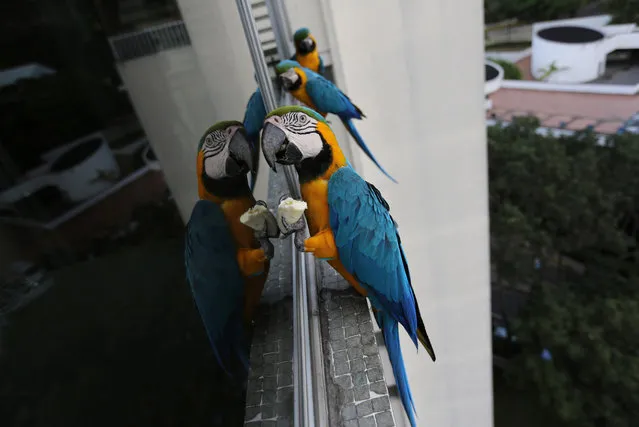
Macaws feed on bananas left for them while they stand on the window ledge of an apartment in Caracas, Venezuela. The city of around 6 million people does not seem welcoming for exotic birds. But the macaws supplement the food they forage with snacks birders leave for them. (Photo by Ariana Cubillos/AP Photo)
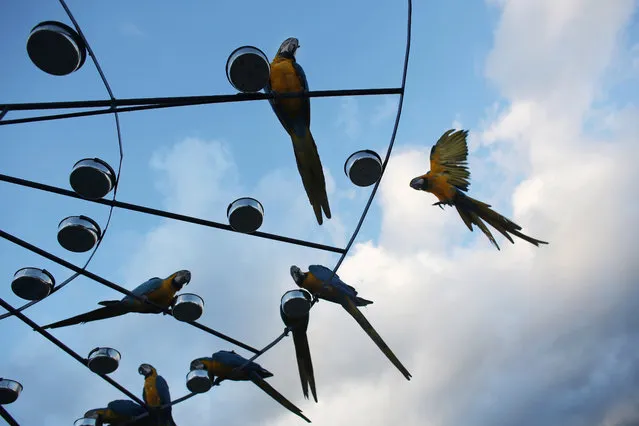
Macaws feed perched on a circular platform with 58 feeder bowls on the roof of an apartment building in Caracas, Venezuela. The city of around 6 million people does not seem welcoming for exotic birds. But the macaws supplement the food they forage with snacks bird lovers leave for them. (Photo by Ariana Cubillos/AP Photo)
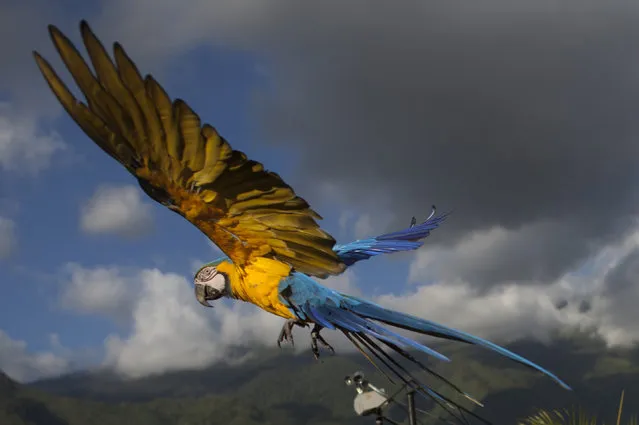
A macaw flies down as it looks to land on a terrace for food, in Caracas, Venezuela. Caracas’ signature bird, the blue-and-yellow macaw, is one of four such species that inhabit the valley. Legend has it that it was introduced in the 1970s by Italian immigrant Vittorio Poggi, who says he nurtured a lost macaw and trained it to fly with his motorcycle as he cruised around his neighborhood. (Photo by Ariana Cubillos/AP Photo)
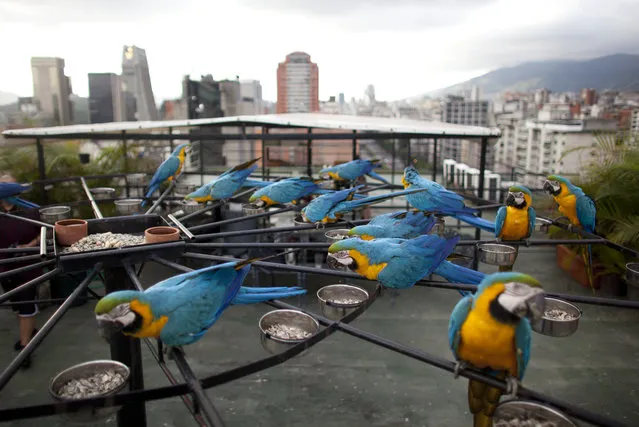
Macaws eat perched on a circular platform with 58 feeder bowls on the roof of an apartment building in Caracas, Venezuela. City resident and bird lover, Ivo Contreras built the circular platform to attract the macaws. “For me, it’s a pleasure to see them come every day ... to share a space with them where you can recharge and find harmony”, said Contreras, 44, who is a stylist for the Miss Venezuela beauty contest. (Photo by Ariana Cubillos/AP Photo)
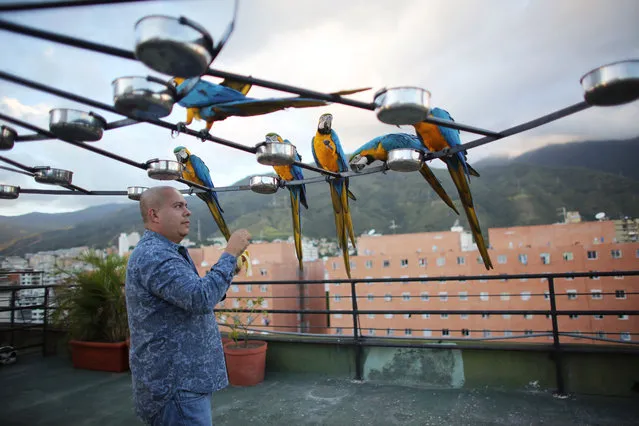
Macaws feed perched on a circular platform with 58 feeder bowls on the roof of apartment in Caracas, Venezuela. (Photo by Ariana Cubillos/AP Photo)
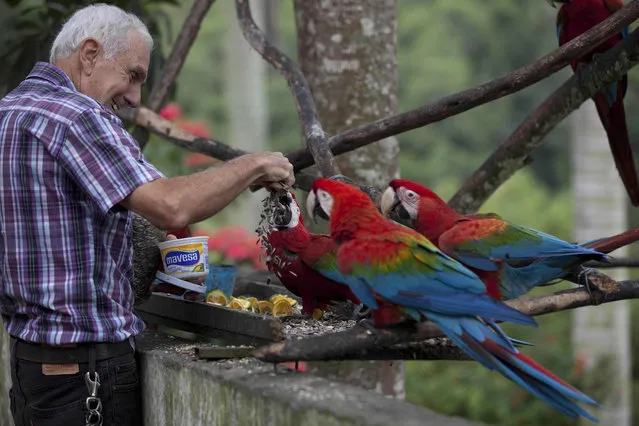
Vittorio Poggi, 70, an Italian immigrant feeds sunflower seeds to red macaws at his house in San Antonio De Los Altos at the outskirts of Caracas, Venezuela. Poggi is credited with the introducing the macaws to the valley where Caracas is situated in the 1970's, who says he found and nurtured a lost macaw, and trained it to fly next to his motorcycle as he cruised around his neighborhood. (Photo by Ariana Cubillos/AP Photo)
27 Nov 2014 15:27:00,
post received
0 comments
